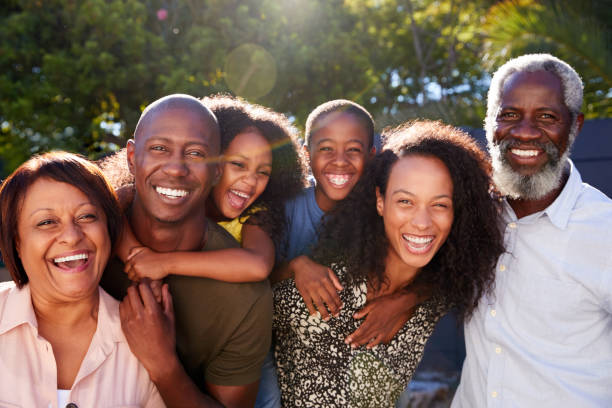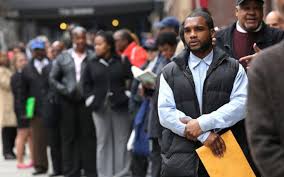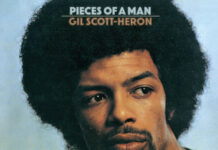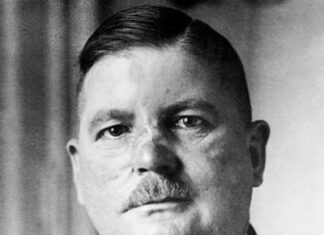When Donald Trump said that Milwaukee was “a terrible city,” “or a horrible city.” Depending on the source. Either way, the political pundits fell all over themselves to avoid the real meaning of Trump’s remarks: Milwaukee has a significant Black population, and Trump dislikes Blacks.
According to four sources, approximately 39% of Milwaukee’s population identifies as Black or African American according to the U.S. Census. This racial segment makes Blacks one of the largest racial groups in the city, nearly equal in size to the White population, which also stands around 38%.
Milwaukee has also earned the distinction of being the most segregated city in the North, and that has accounted for recent racial tensions over the past decades. Trump’s comments are going to create some negative feelings among the thousands of Republicans who will be in the “terrible city” for about a week and will be going to local bars and restaurants for their meals and entertainment. Trump sure knows how to make his supporters anxious about going to a “terrible city.”
But that is the price Republicans pay for following a leader with mental problems.
Trump’s Prejudiced Statements Are Old News
Trump’s dog whistle comments about Milwaukee’s Black residents are nothing new.
When he was president, Trump called some African nations “shithole countries.” During a 2018 meeting about immigration, Trump reportedly questioned why the U.S. should accept immigrants from countries like Haiti and various African nations, suggesting instead that more people should come from countries like Norway. These remarks were widely criticized as racist and demeaning by many politicians, international leaders, and human rights organizations.

The African Union and several African nations demanded an apology, condemning the remarks as offensive and reflecting negative stereotypes. Despite the backlash, Trump denied using such language, although he admitted to using “tough” language during the meeting. According to The Independent and HuffPost U.K., his comments have led to a broader discussion about his administration’s stance on immigration and its impact on U.S.-Africa relations.
From Africa To Central Park: Trump Is a Racist
The case of the Central Park Five had been a significant font of Trump’s prejudice for decades. This case dates to 1989, when a gang of thugs, identified as Black teenagers, assaulted and raped a white female jogger in Central Park. Leaping at the inflammatory situation, Trump took out full-page ads in four New York City newspapers calling for the reinstatement of the death penalty. This was directed at the five teenagers who were wrongfully accused and later acquitted of the crime.
Over the years, despite dismissing the Central Park Five in 2002, Trump repeatedly refused to apologize for his actions and statements. In various interviews and tweets, he has maintained that the individuals were guilty and criticized the settlement they received from New York City after their convictions were overturned. In a 2013 tweet, he referred to them as “muggers” and dismissed a documentary on the case as “one-sided,” according to PolitiFact.
During a 2019 exchange with a reporter, Trump repeated his opinion, saying, “You have people on both sides of that. They admitted their guilt,” and cited opinions from some involved in the original prosecution who believed the city should not have settled the case, according to PolitiFact and Heavy.com.
When addressing the Black community, Trump has taken the low road by denigrating Black communities and telling his Black audience how bad things are. While addressing a Black audience during the 2016 presidential campaign, Trump said, “What do you have to lose by trying something new like Trump? What the hell do you have to lose? You’re living in poverty, your schools are no good, you have no jobs, 58 percent of your youth is unemployed – what the hell do you have to lose?”
At a rally in North Carolina in 2016, Trump remarked, “We’re going to rebuild our inner cities because our African American communities are absolutely in the worst shape they’ve ever been in before. Ever, ever, ever.”
Mexicans also don’t escape Trump’s criticism. When Trump announced his candidacy for president in 2015, he said, “When Mexico sends its people, they’re not sending their best. They’re sending people that have lots of problems, and they’re bringing those problems with us. They’re bringing drugs. They’re bringing crime. They’re rapists. And some, I assume, are good people.”
Like father, like son, Donald Trump Jr. has posted racially insensitive or pandering to white nationalist sentiments on social media but defends them based on free speech.
In the 1970s, the U.S. Department of Justice sued Donald Trump and his father, Fred Trump, for discriminating against African Americans in their real estate business. The case was settled without admission of guilt but included provisions to prevent future discrimination.











